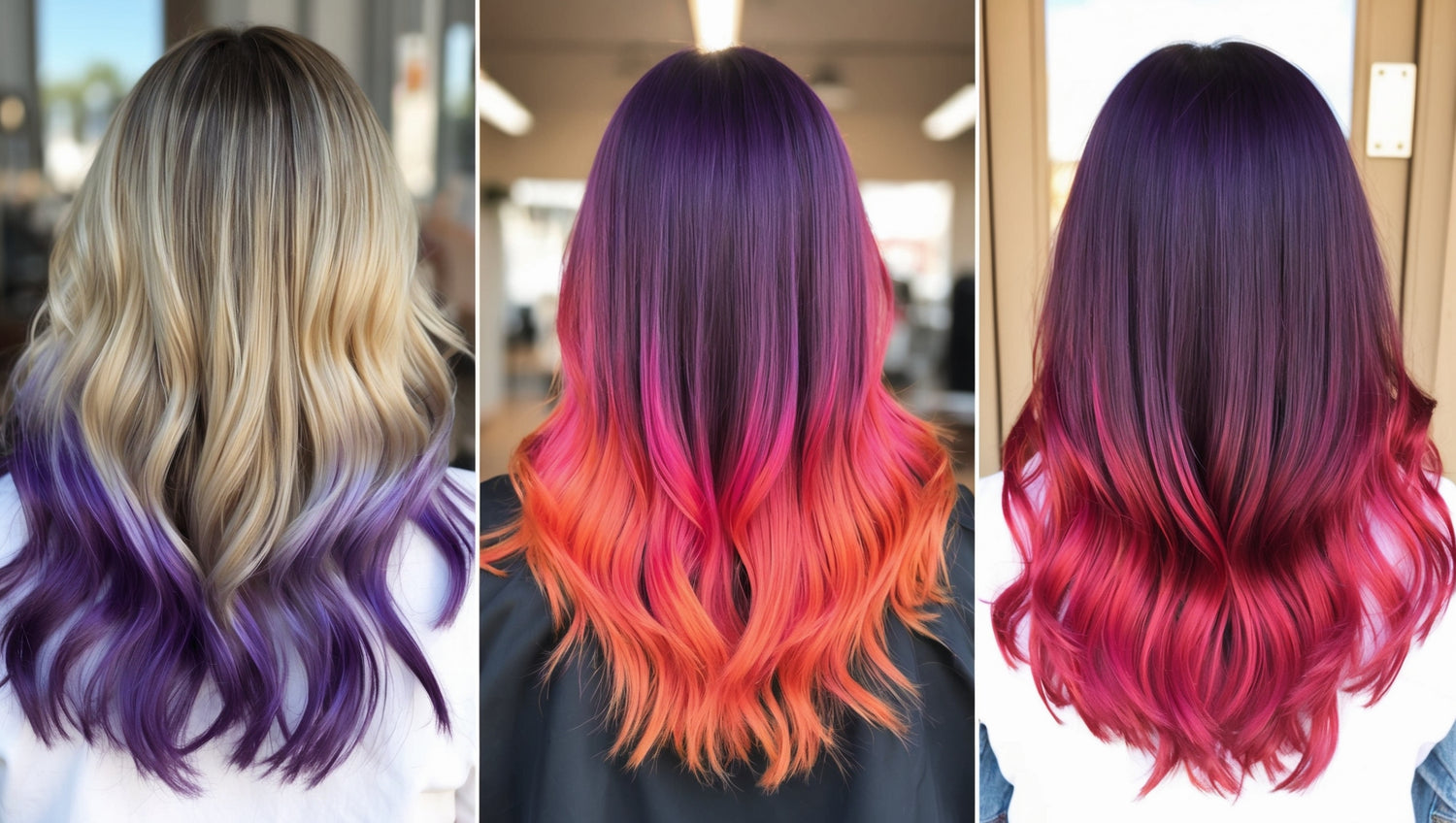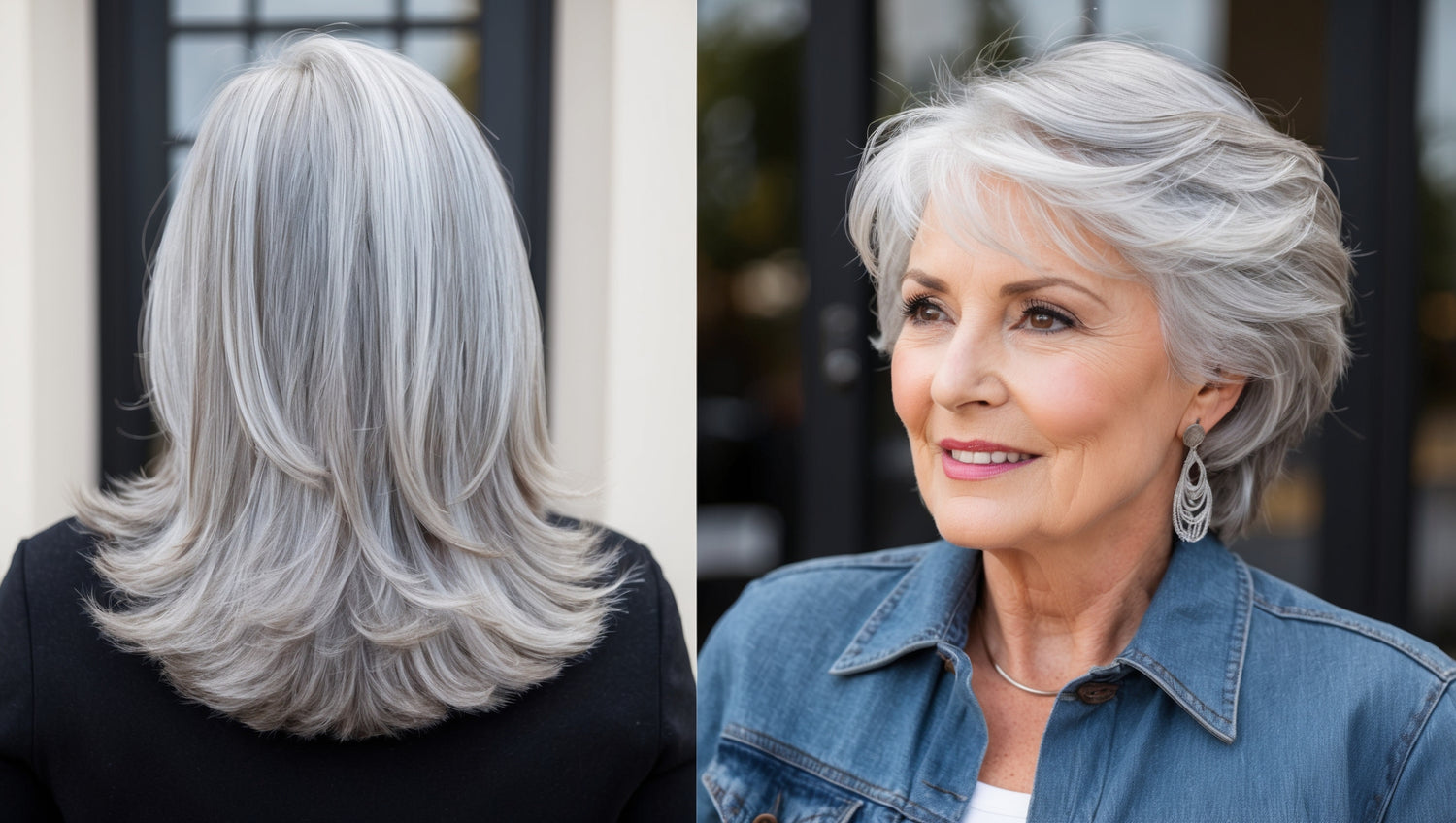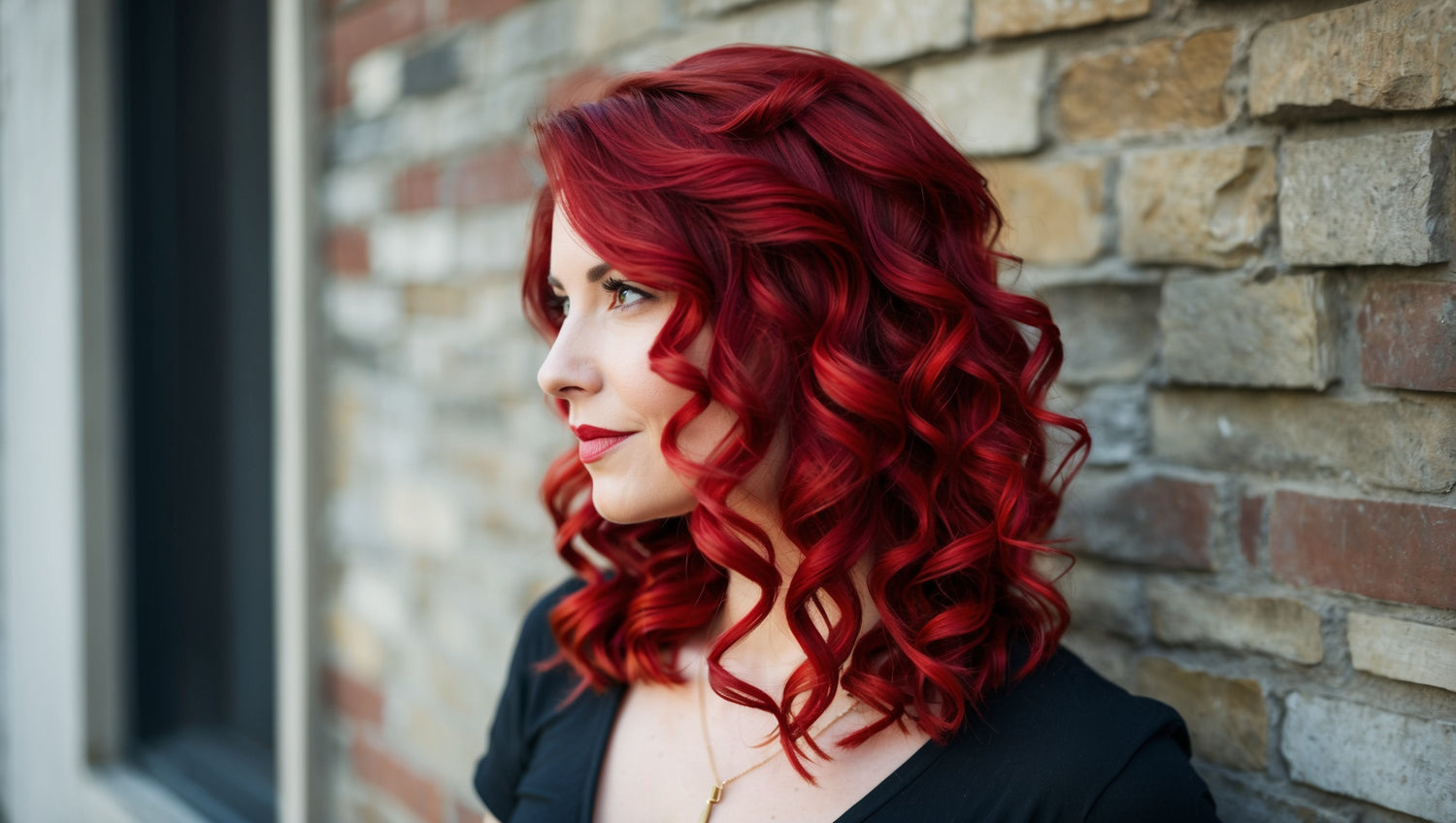FULL HAIR - THESE TIPS
HELP YOU GET A STRONG MANE
HOW DO THIN HAIR DIFFER FROM THICK HAIR?
Thin hair has a smaller diameter than normal or thick hair. Thin hair has a diameter of 0.04 to 0.06 mm, normal and thick hair 0.06 to 0.08 mm and 0.08 to 0.1 mm, respectively. Fine hair is more sensitive to external influences such as heat, UV rays or dyeing. It is also more prone to hair breakage, split ends and dryness.
Fine hair contains up to 50 percent less protein. The lower protein content makes the hair weaker than normal and thick hair, but also more supple. In addition, they usually become greasy more quickly than normal and thick hair.
CAUSES OF THIN HAIR
To get stronger hair, you need to strengthen your hair roots located in the hair follicles. The strength of the hair roots is partly genetically determined and can therefore only be influenced to a limited extent. However, for people who tend to have thin hair, this does not have to be genetically caused. It can therefore also help with supposedly thin hair to try to care for the hair more vigorously. Appropriate hair care and regulating other influences can help.
Factors that affect hair growth, in addition to genetics and hair care, include hormonal changes, stress and vitamin deficiencies.
Hormonal changes such as the onset of menopause or pregnancy cannot be prevented or, depending on your life plan, cannot be prevented.
Of course, stress should be avoided as much as possible, regardless of hair growth. However, avoiding stress is not always possible. However, relaxation exercises, breaks and regular exercise can counteract stress and thus lead to stronger hair growth.
A balanced, nutritious diet is also essential for thick, healthy hair. A sufficient supply of vitamin A, vitamin B, vitamin C and zinc are not only essential for the body, but also support hair growth.
Vitamin A strengthens the hair and keeps it supple. Carrots, kale, peppers and sweet potatoes contain high amounts of beta-carotene, which is converted into vitamin A in the body.
The group of B vitamins is large and also a miracle weapon for thick hair. Various B vitamins are contained in the following foods:
- Vitamin B2: almonds, cheese
- Vitamin B3: Peanuts, dried apricots
- Vitamin B5: mushrooms, broccoli
- Vitamin B 7: Bananas, strawberries, whole grain products
- Folic acid: cereals, asparagus
Vitamin C stimulates blood circulation in the scalp and supports metabolic processes in the roots.
Zinc supports the formation of collagen and keratin in the body. Two essential proteins to stimulate hair growth.
CARE FOR STRONG HAIR
To nourish your hair more effectively, it is effective to avoid shampoos with silicones, parabens and microplastics. These ingredients irritate your scalp and also make your hair lose volume over time.

“Volume Shampoo” from MeMademoiselle contains, among other things, hops, yeast and vitamin C. Three ingredients that nourish the hair, give it strength and therefore make it stronger.
“Chic Conditioner” from MeMademoiselle is the ideal complement to the “Volume Shampoo”. With its ingredient “Hydrolized Keratin”, it regenerates the hair and forms a good basis for radiant, strong hair.

Since fine hair becomes greasy more quickly, the “Balance Anti Oil Shampoo” from MeMademoiselle is also a successful addition to the care routine of fine hair. The shampoo is silicone-free and the keratin it contains helps to create stronger hair. It also works against skin irritations and thus ensures a more pleasant feeling on the scalp.

Regular head massages can also have a stimulating effect on your hair roots. To do this, rub a small portion of argan oil into your palms, massage your scalp and, ideally, let the oil work for a while. Wrapped in a towel allows the oil to penetrate better due to the heat. The oil can then be washed out.
It also makes sense to avoid hair styling and coloring as much as possible. Changing the parting also prevents hairless areas on the head.





